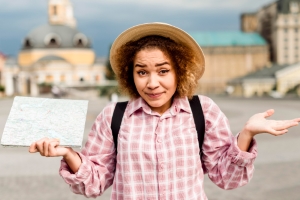Traveling to Eastern and Southern Africa offers a thrilling adventure filled with diverse cultures, landscapes, and wildlife. However, as with any destination, personal safety is a top priority. By taking a few simple precautions, you can enjoy your trip with peace of mind. Here are some practical tips to help you stay safe while exploring the region.
1. Stay Informed About Local Safety Conditions
Before you travel, it’s essential to know the current safety situation in the countries or regions you plan to visit.
✅ Research travel advisories issued by your government.
✅ Stay informed through local news or your hotel about any security concerns or areas to avoid.
✅ If you’re unsure about any destination, ask your tour guide or hotel staff for up-to-date information.
🚫 Avoid traveling to areas that are known for political instability or frequent civil unrest.
2. Secure Your Belongings
Petty theft can happen in busy areas, so it’s important to be cautious with your personal items.
✅ Always keep your valuables, such as passports, money, and electronics, in a secure, zipped bag.
✅ Use a money belt or hidden pouch to carry cash and cards.
✅ If you’re in a crowded market or tourist area, be extra vigilant about your surroundings.
🚫 Don’t carry too much cash or flash expensive items like jewelry and cameras in public places.
3. Use Reputable Transportation Options
Whether you’re using taxis, rideshares, or public transportation, ensure that your transportation is trustworthy and safe.
✅ Arrange transportation through your hotel or a reputable company.
✅ Use ride-hailing apps like Uber or Lyft in major cities if available.
✅ Always agree on the price with a taxi driver before getting into the vehicle, or make sure the meter is running.
🚫 Avoid using unmarked taxis or accepting rides from strangers, especially at night.
4. Practice Caution at Night
Like many travel destinations, certain areas in Eastern and Southern Africa may not be as safe after dark.
✅ Stick to well-lit, populated areas at night, especially if you’re unfamiliar with the city.
✅ Avoid walking alone after dark; instead, use a trusted form of transport to get back to your accommodation.
✅ If you’re staying in a remote area, ask your hotel about safety measures for night travel.
🚫 Avoid walking through unfamiliar or poorly lit areas, particularly after dark.
5. Health and Emergency Preparedness
While exploring new places, it’s always better to be prepared for any health-related issues.
✅ Carry a small first-aid kit with essential medications, insect repellent, and sunscreen.
✅ Know the location of nearby medical facilities in case of an emergency.
✅ Make sure you have travel insurance that covers medical emergencies and evacuation.
🚫 If you’re on any regular medication, make sure to bring enough for your entire trip, along with a copy of your prescription.
6. Trust Your Instincts
When traveling, your intuition is often your best tool for staying safe.
✅ If a situation doesn’t feel right, remove yourself from it as quickly as possible.
✅ Be cautious when engaging with strangers, especially if they seem overly persistent or pushy.
✅ Let someone know where you are going, especially if you’re venturing into unfamiliar areas.
🚫 Trust your gut—if you feel uncomfortable, it’s okay to leave and seek help.
7. Stay Connected
Staying in touch with family or friends while traveling can add an extra layer of security.
✅ Share your itinerary and emergency contacts with someone back home.
✅ Use apps like WhatsApp or email to keep in touch regularly.
✅ If you’re traveling solo, consider checking in with someone daily.
🚫 Avoid being completely isolated, especially when traveling to unfamiliar or remote areas.
Travel Smart, Stay Safe
By following these personal safety tips, you can minimize risks and focus on enjoying your African adventure. Remember, staying vigilant, prepared, and connected will help ensure that your trip is as safe as it is memorable.







